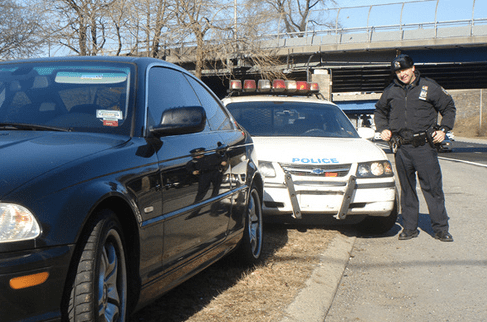The Mayor's Management Report, an annual summation of how well city agencies are doing their jobs, includes bad news for traffic safety and sustainable streets. In the last fiscal year, traffic fatalities were at their highest level since 2008, and NYPD moving violations summonses were at a 10-year low. Meanwhile, DOT missed its bike lane and bike rack goals for the year.

The total number of traffic crashes dropped for the second year in a row, falling 1.5 percent from last year. DOT says that crashes were most prevalent on highways and during overnight hours, with more than half of motorist or passenger fatalities due to speeding, drunk driving and running red lights or stop signs.
Traffic crashes killed 176 cyclists and pedestrians in FY 2012, up from 158 in 2011, and 115 motorists and vehicle passengers, up from 78 the year before. More than half of the increase in motorist fatalities were motorcyclists. This 23 percent jump in total traffic fatalities comes after four years of decline.
NYPD issued fewer moving violations summonses in the past year than at any time since 2002. Summonses for cell phone use while driving fell to their lowest level since 2005. While the report tells us how many tickets officers are writing, it does little to illuminate whether compliance with traffic laws is getting better or worse.
Transportation Alternatives was critical of police traffic enforcement. "Since January 1, 2012, the NYPD wrote 28 percent fewer tickets for speeding, the number one killer in traffic, as tinted windows," TA noted.
DOT spokesman Seth Solomonow said that the traffic fatality numbers show the need for "legislation in Albany to expand red-light cameras and install the city’s first speed cameras."
DOT failed to meet its own targets for bike lane and bike rack installation, according to the report. The agency barely reached half its annual goal of 50 lane miles, with 25.8 miles of bike lane in 2012, of which 4.7 lane miles were protected bike lanes.
The agency also fell short of its goal of 1,500 new bike racks per year, installing 1,286 bike racks. That's down by more than 50 percent from the year before. DOT said that development of the meter rack and StreetRack programs slowed progress this year, and said the agency anticipates to pick up the pace for bike rack installations in the future.





